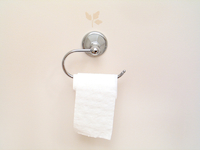 Your bladder is not the boss of you, yet many people allow their lives to be limited by a weak bladder. Physiotherapy New Zealand (PNZ) believes many people simply put up with incontinence and the restrictions it puts on their lifestyle.
Your bladder is not the boss of you, yet many people allow their lives to be limited by a weak bladder. Physiotherapy New Zealand (PNZ) believes many people simply put up with incontinence and the restrictions it puts on their lifestyle.
A survey from PNZ shows more than 50% of New Zealanders believe incontinence is just a 'normal' part of getting older.
“While incontinence may be common, it is not normal and can be treated,” says physiotherapist Melissa Davidson."It's a sign of dysfunction or a problem in the body and it can be treated very effectively."
Bladder weakness causes sufferers to worry about leaving the house and being too far tom a toilet, or exercising and sometimes something as simple as sneezing or lifting heavy objects.
Research shows pelvic floor training from a physiotherapist is successful in treating over 80% of incontinence cases, so it really is worth talking to your GP or physiotherapist about it.
The New Zealand Continence Association estimates that 1.1 million New Zealanders experience incontinence. To regain control of your bladder:
Do your pelvic floor exercises regularly
Your pelvic floor is a muscle and just like any other, it’s one that needs to be exercised. The idea of these exercises is to 'squeeze and lift' your pelvic floor, holding for 3 -10 seconds and then repeating. Make it a daily habit by combining it without another regular task (like brushing your teeth or doing the dishes) to remind you.
Try the brace technique
Lifting heavy objects/weights, or chronic coughing can all weaken your pelvic floor. To prevent this try using the ‘brace’ technique when you perform these activities. To do this simply ‘squeeze and lift’ your pelvic floor before you lift or cough.
Seek help
Talk to your GP if you are experiencing any incontinence problems and remember there is treatment available. You can also see a pelvic floor physiotherapist directly for treatment or ring the continence helpline 0800 650 659 for free advice.









Join the Discussion
Type out your comment here:
You must be logged in to post a comment.